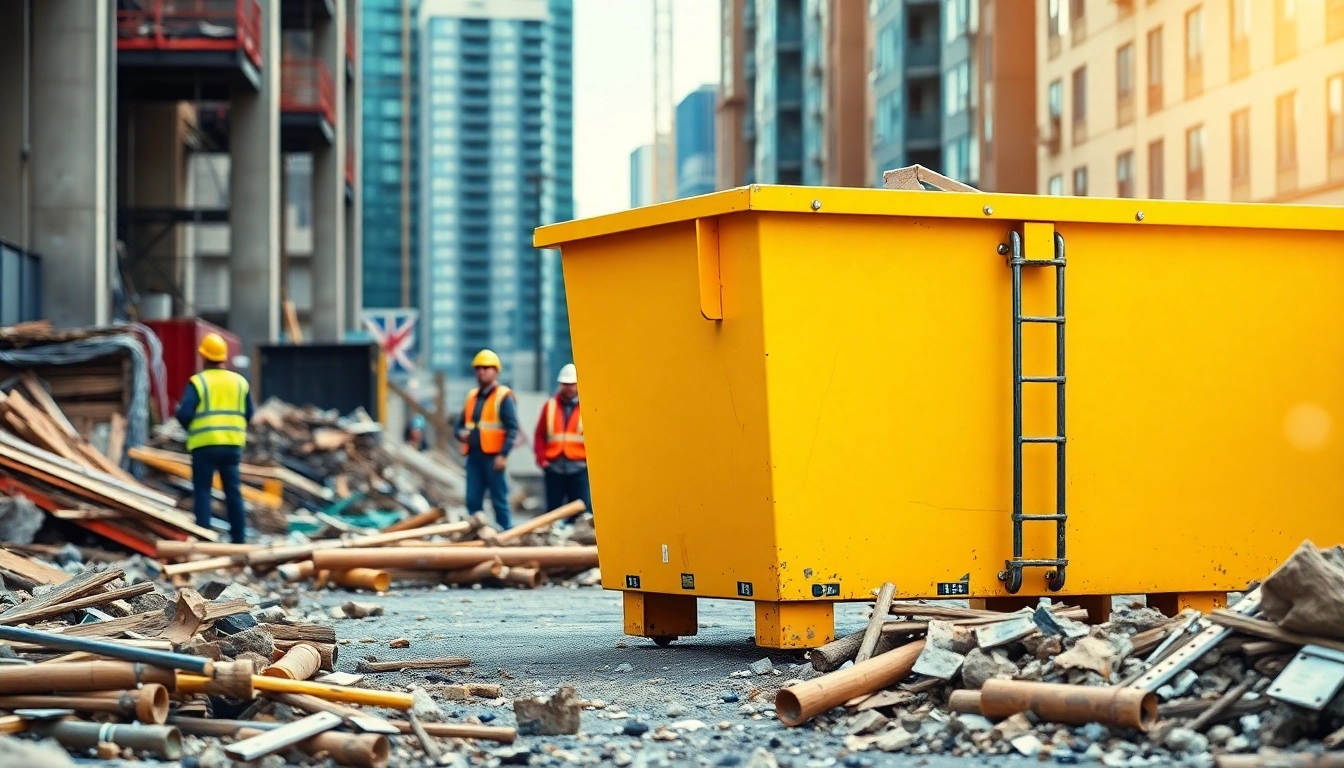Understanding the Moving Process
Moving can be a daunting task, often accompanied by a mix of excitement and stress. Whether you’re relocating for a new job, upsizing, downsizing, or simply seeking a fresh start, the moving process encompasses several stages and considerations. To navigate this journey successfully, it is crucial to understand the intricacies involved in the moving process. By arming yourself with knowledge and planning accordingly, you’ll be well on your way to a smoother transition. An essential component of this journey is finding the best moving company in Toronto to help you along the way.
What to Consider Before Moving
Before diving into the moving process, there are several factors to assess to ensure you’re prepared for the upcoming changes. Here are key considerations:
- Timing: Analyze your timeline. When is your lease up, or when does your new home become available? Having a precise schedule will help you coordinate your move efficiently.
- Budget: Construct a detailed budget that factors in every aspect of the move, from hiring a best moving company in Toronto to packing materials and utilities setup in your new home.
- Decluttering: Take this opportunity to declutter belongings. Evaluate what items you truly need to keep. Consider donating or selling items that no longer serve a purpose.
- Research: Investigate neighborhoods, schools, and amenities in your new area. This initial research is pivotal for a successful transition.
- Support System: Identify who can assist you during this process. Whether it is friends, family, or professionals, having support can make a significant difference.
Steps in a Successful Move
Success in moving depends largely on planning and execution. Here’s a step-by-step guide to help you stay organized:
- Create a moving checklist: Outline all tasks that need to be completed before, during, and after the move.
- Compile inventory: Take stock of your belongings. Categorizing them into keep, donate, or discard will simplify the packing process.
- Secure your moving date: Book your preferred moving company in advance. This helps avoid last-minute stress.
- Pack strategically: Begin packing non-essential items first. Label boxes according to their contents and the room they belong to.
- Prepare essential items: Have a separate bag with essentials such as documents, toiletries, and clothing for the first few days in your new home.
- Confirm details with movers: Confirm times, locations, and any special requirements with your moving company.
- Conduct a final walkthrough: Before leaving, check your old home for any forgotten items.
Essential Moving Supplies
Having the right supplies on hand can significantly ease the moving process. Here’s a list of essential materials needed:
- Boxes: Have a variety of sizes on hand for different items.
- Tape: Strong packing tape to ensure boxes are securely closed.
- Bubble wrap and packing paper: Protect fragile items during transit.
- Markers: For labeling boxes clearly.
- Furniture pads: To protect larger items.
- Scissors: A handy tool for cutting tape and materials.
- Moving blankets: Preserve furniture from scratches and damage.
Choosing the Best Moving Company in Toronto
One of the most critical decisions in the moving process is selecting a reputable moving company. It can significantly impact your overall experience. Here’s how to choose wisely:
Key Factors to Evaluate
When searching for the best moving company in Toronto, consider the following:
- Reputation: Investigate online reviews and testimonials from previous clients. Consistent positive feedback can highlight reliability.
- Experience: Look for companies with a solid history in residential and commercial moves. Experienced movers tend to handle unforeseen challenges better.
- Services offered: Ensure the company provides services tailored to your needs, including packing, transportation, and unpacking.
- Licensing and insurance: Verify that the moving company is fully licensed and insured, offering protection for your belongings.
- Quotes: Request estimates from multiple companies to compare prices. Ensure each quote includes all potential charges to avoid hidden costs.
Understanding Moving Estimates
Moving estimates can vary significantly based on several factors. Here’s a breakdown of what to consider:
- Types of estimates: Be mindful of binding and non-binding estimates. A binding estimate protects you from unexpected price hikes, while a non-binding one might fluctuate.
- Factors that affect the cost: Key components influencing moving costs include distance, size/weight of your belongings, labor intensity, and additional services required (e.g., packing).
- Verification: After receiving an estimate, ensure it reflects your intended services and needs. Engage in open dialogue with the moving company to clarify any uncertainties.
Reading Customer Reviews
Customer reviews provide valuable insights into a moving company’s reputation and reliability. Here are some tips for evaluating reviews:
- Diversity of sources: Look for reviews across various platforms – Google, Yelp, social media – to gain a holistic view.
- Examine both positive and negative reviews: While positive reviews highlight strengths, negative ones can reveal potential red flags.
- Patterns and consistency: Look for repeated comments regarding specific services or experiences; patterns can be telling.
Services Offered by the Best Moving Company in Toronto
Not all moving companies offer the same services. Here’s what to expect from the best moving company in Toronto:
Residential Moving Services
Residential moving services typically include:
- Local moving: Tailored for short-distance relocations, these services can include packing, loading, transportation, and unpacking.
- Long-distance moving: These moves require a focus on logistics, ensuring timely delivery and safety for your belongings over extended distances.
- Packing services: Many companies offer packing assistance, helping ensure items are secured appropriately.
Commercial Moving Services
Businesses may have unique needs during relocation. A professional moving service offers:
- Office relocations: Specialized teams to manage the complexities of moving office equipment and ensuring minimal downtime.
- Furniture and equipment installation: After the move, many companies assist with setting up office spaces efficiently.
- Bulk moving: Catering to businesses, bulk moves can involve transporting large quantities of equipment or furniture.
Specialized Moving Services
For unique circumstances, specialized moving services may include:
- Fragile item handling: Experts on delicate antiques or artwork ensure these items are handled and transported with the utmost care.
- Piano or large item moving: Specialized equipment and trained personnel are essential for safely moving non-standard items.
- Storage solutions: Temporary storage services can accommodate transition periods when immediate relocation isn’t feasible.
Cost Management for Your Move
Managing moving costs can be challenging, but it’s essential for budget-friendly transitions. Here’s how to maintain cost control:
Factors Influencing Moving Costs
Understanding the factors that contribute to overall costs can help in planning. Key elements include:
- Distance: Longer distances typically incur higher transportation costs.
- Volume of items: More items require more time and resources for packing and transporting.
- Timing: Peak moving seasons can lead to higher prices; plan your move during off-peak times if possible.
- Additional services: Services such as packing, loading, and unpacking can increase overall costs.
Tips to Reduce Moving Expenses
Here are some practical approaches to limit your moving expenses:
- Plan ahead: Booking your movers in advance can prevent last-minute price spikes.
- Purge items: Reduce your volume of goods to the essentials, minimizing moving costs.
- DIY options: Consider packing your own items or enlisting friends and family to help with the move.
- Seek cost-effective moving companies: Look for reputable companies that offer competitive pricing without sacrificing quality.
How to Create a Moving Budget
A well-planned budget can serve as a guiding document throughout your move:
- Estimate total costs: Include all aspects like movers, packing supplies, transportation, and potential fees.
- Set clear categories: Divide your budget into categories such as transportation, packing costs, and miscellaneous expenses.
- Stay flexible: Allow for unexpected costs by including a buffer in your budget to accommodate unforeseen expenses.
Post-Move Support and Settling In
After the hustle of moving day, settling into your new space is the next critical phase. Here are steps to ease this transition:
Unpacking Tips to Save Time
Unpacking efficiently can help you feel more at home sooner. Consider these strategies:
- Start with essentials: Unpack items necessary for daily use first, such as kitchenware, toiletries, and clothing.
- Room-by-room approach: Focus on one room at a time to avoid feeling overwhelmed and to maximize productivity.
- Use labeled boxes: Identifying boxes according to their contents and respective rooms simplifies unpacking.
Organizing Your New Home
Once unpacked, organizing your living space will help you feel comfortable:
- Assess the layout: Evaluate furniture arrangements for optimal flow and function in each room.
- Create a system: Establish a place for each item, making it easier to maintain organization over time.
- Personalize your space: Add decorative touches that reflect your personality, enriching your new home environment.
Contacting Customer Support After the Move
Post-move support is crucial if you encounter any issues:
- Stay connected: Reach out to your moving company for any concerns regarding damage or missing items.
- Gather information: Keep all paperwork handy, including receipts and contracts, to reference as needed.
- Share feedback: Providing a review or feedback can help enhance future service levels and assist other consumers in making informed decisions.



